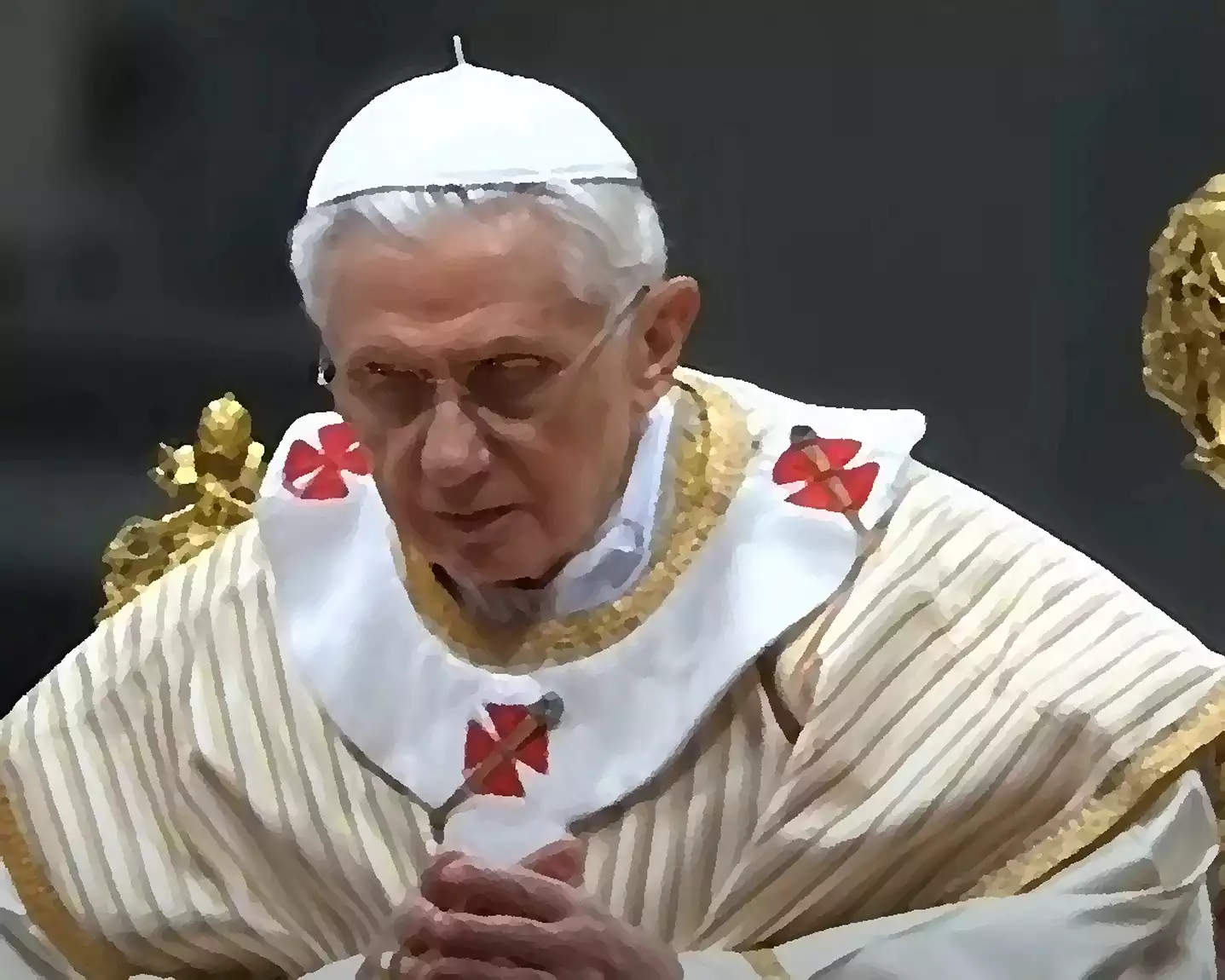
Pope Benedict XVI, born Joseph Aloisius Ratzinger on April 16, 1927, in Marktl, Bavaria, Germany, and passing away on December 31, 2022, served as the head of the Catholic Church and the sovereign of the Vatican City State from 2005 until his resignation in 2013. His papacy was marked by intellectual rigor and a steadfast commitment to traditional Catholic doctrine, succeeding the influential tenure of Pope John Paul II. Renowned for his deep theological knowledge and scholarly approach, Benedict XVI’s contributions have been pivotal in shaping the contemporary understanding of Catholicism, particularly in the areas of liturgical reform, interfaith dialogue, and the strengthening of ecclesial identity.
Early Life and Ecclesiastical Career
Pope Benedict XVI’s journey to the Vatican began in a small Bavarian town. His early years were shaped by the tumultuous era of World War II, influencing his theological and philosophical outlook. Ordained as a priest in 1951, Ratzinger quickly distinguished himself as a brilliant theologian, earning respect in academic circles. His participation in the Second Vatican Council (1962-1965) as a peritus (theological advisor) was a critical step in his ecclesiastical journey, showcasing his ability to blend deep theological insight with pastoral concern.
In 1977, Ratzinger was appointed Archbishop of Munich and Freising, a role that catapulted him into higher ecclesiastical office. His elevation to the College of Cardinals later that year by Pope Paul VI marked the beginning of his prominent role in the Vatican. As a cardinal, Ratzinger’s influence grew, particularly in his role as Prefect of the Congregation for the Doctrine of the Faith, a position he held from 1981 until his election as pope. In this role, he was responsible for safeguarding the church’s doctrine and was instrumental in addressing various theological controversies and challenges facing the church.
His tenure as Prefect was marked by a commitment to preserving traditional Catholic teachings amidst a rapidly changing world. He tackled complex issues such as bioethics, sexual morality, and interfaith dialogue with a blend of doctrinal fidelity and theological acumen. This period also saw him dealing with sensitive issues like the sexual abuse scandals within the church, emphasizing the need for justice and accountability.
Pope Benedict XVI’s intellectual prowess was not confined to theology alone. He was also a prolific author, contributing significantly to Catholic literature. His writings, characterized by depth and clarity, have had a lasting impact on Catholic thought and have been instrumental in shaping the church’s response to contemporary moral and ethical challenges.
In conclusion, Pope Benedict XVI’s early life and ecclesiastical career laid the foundation for a papacy that was both traditional and responsive to the complexities of the modern world. His intellectual contributions and unwavering commitment to the church’s teachings have left an indelible mark on the Catholic Church, making him a pivotal figure in contemporary religious history.
Papacy and Resignation
Pope Benedict XVI’s papacy was marked by several key themes and events that defined his leadership of the Catholic Church. He emphasized the importance of traditional Catholic values and teachings, while also engaging in interfaith dialogue and addressing global issues. His pontificate was also notable for its scholarly approach to faith, as he sought to integrate theology with contemporary challenges.
One of the most significant aspects of Benedict XVI’s papacy was his emphasis on the “New Evangelization,” aimed at reinvigorating the Catholic faith in a secularized world. He called for a renewed focus on the fundamentals of Christian faith, particularly in regions where secularism had weakened traditional religious values. Additionally, his papacy was marked by efforts to improve relations with other Christian denominations and with non-Christian religions, notably Judaism and Islam.
However, his papacy also faced challenges, including the handling of sexual abuse scandals within the Church. Benedict XVI took steps to address these issues, but they continued to be a source of controversy and pain for the Church and its followers.
In a historic and unprecedented move, Pope Benedict XVI resigned from the papacy on February 28, 2013, citing his advanced age and declining health. His resignation marked the first time in over 600 years that a pope had resigned from office. This decision reflected his understanding of the demands of the papal office and his humility in recognizing his physical limitations.
Pope Benedict XVI’s tenure as the leader of the Catholic Church was a period of deep intellectual reflection and commitment to the core values of the Church. His scholarly approach to faith, emphasis on traditional teachings, and efforts at interfaith dialogue have left a lasting impact on the Church. His resignation, a significant moment in the history of the papacy, demonstrated his profound sense of responsibility and commitment to the welfare of the Church.
References
- Allen Jr., John L. “Pope Benedict XVI: A Biography of Joseph Ratzinger.” Continuum, 2005.
- “Benedict XVI: In Memoriam.” La Civiltà Cattolica, 2023. Accessed December 17, 2023. La Civiltà Cattolica
- “Benedict XVI.” Encyclopædia Britannica, 2023. Accessed December 17, 2023. Encyclopædia Britannica
- Gale Group. “Pope Benedict XVI: An Overview.” Gale Academic OneFile, 2023. Accessed December 17, 2023. Gale Academic OneFile
- “The Life and Ministry of Pope Benedict XVI.” United States Conference of Catholic Bishops, 2023. Accessed December 17, 2023. USCCB
- The University of Birmingham. “Pope Emeritus Benedict XVI.” 2023. Accessed December 17, 2023. University of Birmingham
The historic journey of Pope Benedict XVI to the Ecumenical Patriarchate of Constantinople. This visit symbolized a significant step in fostering dialogue and unity between the Roman Catholic and Eastern Orthodox Churches.
